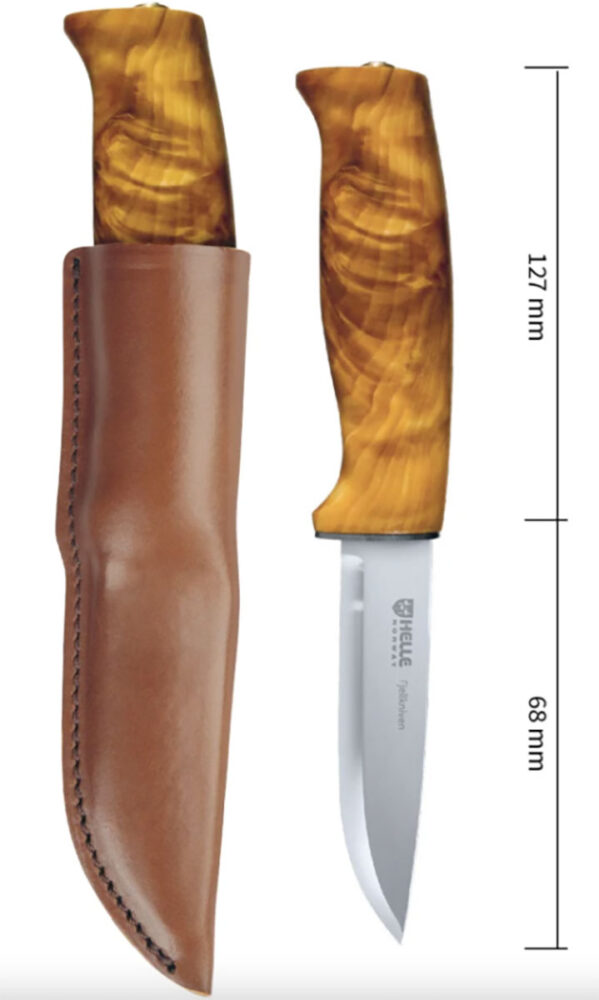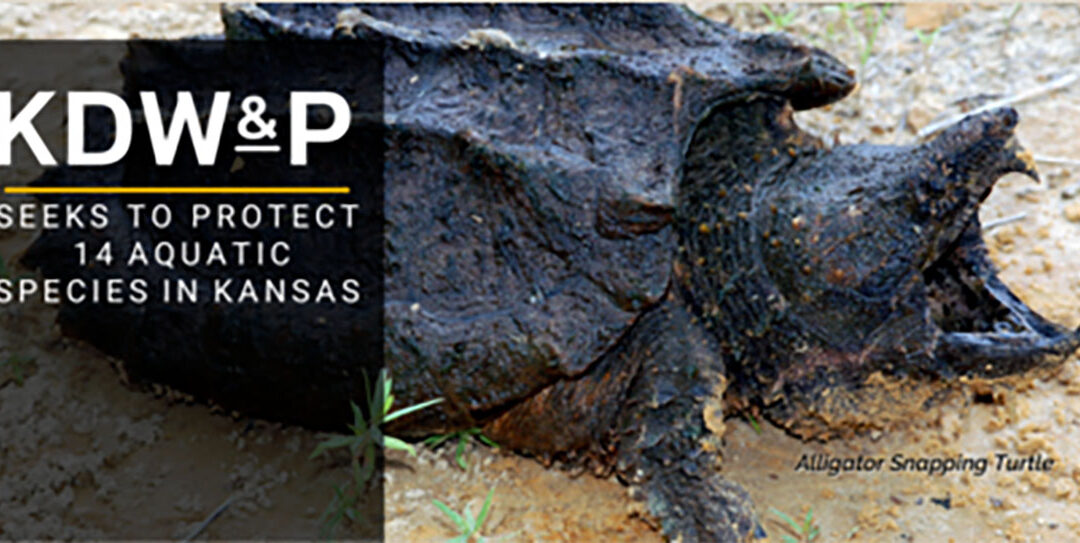“This is a really novel approach to proactively recovering sensitive Kansas species and protecting landowners and their neighbors while allowing them to farm and ranch as they always have,” said KDWP Secretary Brad Loveless.
CCAAs and SHAs are voluntary agreements between private landowners and the USFWS designed to reduce threats to federally-listed or at-risk species. The five federally-listed species in Kansas that would be covered by the proposed SHA are the Topeka Shiner, Neosho Mucket, Arkansas River Shiner, Rabbitsfoot mussel and Neosho Madtom.
CCAAs afford protections for species that are not listed under the protection of the Endangered Species Act but are still considered “at risk.” This is accomplished by providing assurances to enrolled landowners who implement various conservation activities that the landowner will not be subject to additional restrictions should the covered species be listed under the Endangered Species Act. The nine species that would be covered by the CCAA in Kansas are the Alligator Snapping Turtle, Peppered Chub, Plains Minnow, Silver Chub, Hornyhead Chub, Butterfly mussel, Fluted Shell mussel, Cylindrical Papershell mussel, and Flat Floater mussel.
SHAs are voluntary agreements involving private landowners whose actions contribute to the recovery of species listed as endangered or threatened under the Endangered Species Act. In exchange for actions that contribute to the recovery of listed species, landowners receive assurances that they will not be required to implement any additional or different management activities. In addition, at the end of the agreement period, participants may return the enrolled property to the baseline conditions that existed when they initially enrolled.
“The Kansas Livestock Association supports voluntary conservation efforts that recognize the important role of private landowners,” said Matt Teagarden, Chief Executive Officer of the Kansas Livestock Association. “These types of programs have proven to be effective in supporting sensitive species.”
If finalized, the programmatic CCAA/SHA would allow KDWP to enroll interested landowners in Kansas and allow or continue proactive conservation of the covered species – activities such as the introduction, reintroduction, augmentation, and translocation of the covered species, and habitat protection or enhancement for the covered species. Incidental take of the covered species as a result of the implementation of such conservation measures or ongoing land management activities on enrolled lands would also be allowed under the programmatic CCAA/SHA.
“As our nation’s original conservationists, farmers and ranchers understand how important it is to preserve and enhance our natural resources,” said Kansas Farm Bureau President Rich Felts. “Kansas Farm Bureau supports the development of voluntary, incentive-based conservation management plans, like these proposed agreements, that will help increase or maintain the population of target species, making a threatened or endangered listing for them unnecessary.”
Interested parties may submit comment on the proposed programmatic CCAA/SHA through October 15. To submit comments, parties may use one of the methods listed below. When submitting information requests or comments, please make reference to the “Kansas Aquatic SHA/CCAA.”
Online: http://www.regulations.gov. Follow the instructions for submitting comments to Docket Number FWS-R6-ES-2021-0056.
U.S. Mail: Public Comments Processing, Attn: Docket No. FWS-R6-ES-2021-0056; U.S. Fish and Wildlife Service Headquarters, MS: PRB/3W; 5275 Leesburg Pike; Falls Church, VA 22041-3803.
For more information about CCAAs, SHAs and this project, visit https://www.fws.gov/kansases/landownertools.php. Or, contact Gibran Suleiman, USFWS biologist, at (785) 539-3474 ext. 114, via email at gibran_suleiman@fws.gov, or via the Federal Relay Service at (800) 877-8339.
 The Fjellkniven is a traditional all-purpose belt knife. This highly polished laminated stainless steel blade is shaped for every day chores. The comfortable grip is shaped to keep your hands off the blade. It comes with the traditional pouch style sheath that does not require a keeper strap. Buy Now
The Fjellkniven is a traditional all-purpose belt knife. This highly polished laminated stainless steel blade is shaped for every day chores. The comfortable grip is shaped to keep your hands off the blade. It comes with the traditional pouch style sheath that does not require a keeper strap. Buy Now

